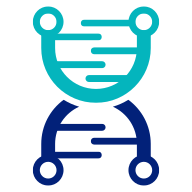4 Examples of Research that Directly Influenced Clinical Practice
Delve into the pivotal research that's reshaping clinical practice, featuring expert insights on groundbreaking advancements. From revolutionizing epilepsy management through NGS testing to optimizing patient outcomes with refined dermal filler techniques, this article uncovers how scientific discoveries are translated into life-changing treatments. Uncover the transformative effects of personalized medicine and streamlined clinic operations on patient care and survival rates.
- NGS Testing Improves Epilepsy Management Decisions
- Refined Dermal Filler Techniques Enhance Patient Satisfaction
- Noterro Streamlines Clinic Operations
- Personalized Lung Cancer Treatment Boosts Survival Rates
NGS Testing Improves Epilepsy Management Decisions
My research in 2024 recently demonstrated a high diagnostic yield of next generation sequencing (NGS) testing with whole exome sequencing and whole genome sequencing trios for patients with unexplained neurodevelopmental delay and seizures. Based on the findings of this retrospective cohort study, we concluded that the yield for positive NGS testing was between 61.5-77.8% for children with epilepsy and neurodevelopmental delays with the highest yield for consanguineous families, while NGS is still often positive for nonconsanguineous families. This research has directly informed our multidisciplinary epilepsy surgery group at Riley Children's Health to send NGS genetic testing in appropriate cases for high diagnostic yield groups, and positive NGS testing frequently impacts our medical and surgical decisions for the management of these patients in our multidisciplinary epilepsy surgery conference.

Refined Dermal Filler Techniques Enhance Patient Satisfaction
At Lumi Aesthetics, research drives our commitment to natural, effective results. By refining dermal filler techniques based on the latest studies in facial anatomy, we achieved smoother, longer-lasting enhancements with minimal downtime. Patients immediately noticed the difference. One client, hesitant for years, was thrilled with her subtle yet transformative results. This approach reinforces my dedication to innovation, ensuring every treatment is safe, precise, and tailored to enhance each client's natural beauty.

Noterro Streamlines Clinic Operations
One of the most impactful moments in my career came when I recognized how much time clinics were losing to manual paperwork and inefficient practice management. This insight led to the creation of Noterro--a solution designed to automate routine tasks like scheduling, billing, reminders, and taking digital SOAP notes.
By streamlining these processes, clinics could spend more time focused on patient care rather than getting bogged down with administrative work. The feedback from practitioners has been overwhelmingly positive--they're able to operate more efficiently and provide a higher standard of care.
This experience reinforced the importance of innovation in practice management and the difference it can make in day-to-day clinical operations.

Personalized Lung Cancer Treatment Boosts Survival Rates
Certainly! One particularly rewarding instance was when my research on the effectiveness of targeted therapy for lung cancer significantly influenced clinical protocols. The study focused on developing a personalized treatment approach that involved genetic profiling of tumor cells from patients. This profiling allowed us to identify specific mutations responsible for cancer growth and, subsequently, to select therapies that specifically targeted those mutations.
The results were groundbreaking, showing a marked improvement in patient survival rates and reduced side effects compared to traditional chemotherapy treatments. As a direct consequence, several clinical practices adopted these personalized treatment plans, enhancing patient care standards and outcomes. This shift toward precision medicine not only improved the quality of life for many patients but also underscored the importance of tailored therapies in oncology. This experience was a profound reminder of how scientific research can bring tangible changes to healthcare, making a real difference in people's lives.


